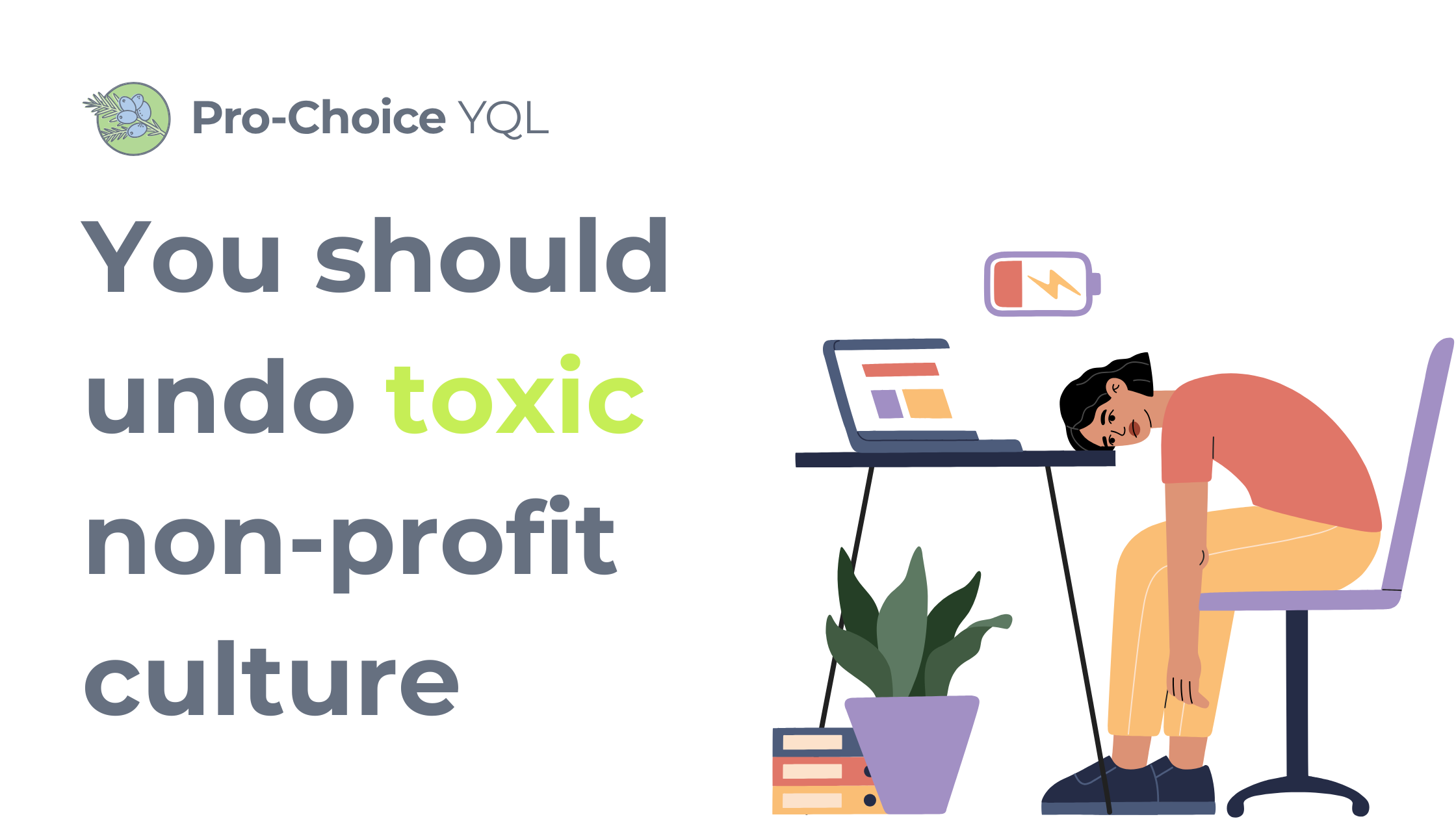#PronounsDay: Pronouns, Power, and Advocacy
Every October, International Pronouns Day invites us to reflect on the connection between language and the systems we navigate. For Pro-Choice YQL, this reflection is more than symbolic. Our work has always been about autonomy — the right to define and speak for ourselves, to make choices about our bodies, and to live without coercion or control. Pronouns are one way that autonomy is expressed and respected. They remind us that identity, and choice, belongs to the individual.
Pronouns as a Site of Power
Pronouns carry power. The words we use to describe each other are never neutral; they reflect the systems we live within and the hierarchies they create. When we assume someone’s pronouns, we often reinforce gender norms that have long been used to control whose identities are recognized and whose are erased. But when we pause, ask, and listen, we disrupt those hierarchies. Introducing pronouns intentionally — and respecting others’ — becomes an act of resistance against the idea that gender is fixed, visible, or determined by others.
Power isn’t only about job titles or hierarchy; it’s also shaped by privilege — being white, cisgender, straight, abled, or otherwise socially dominant. When someone with more privilege asks for pronouns, it can unintentionally place others in a vulnerable position, forcing disclosure or discomfort. Leading with your own creates space without pressure. It shifts the focus from extraction to invitation.
Challenging Gender Norms Through Language
Language shapes how we see the world and who we make room for in it. It is one of the earliest tools through which gender is enforced. Pronouns become shorthand for expectation; a signal of how someone should behave, dress, or move through the world. These linguistic habits don’t describe reality but actively produce it. When language assumes a fixed relationship between bodies, identities, and pronouns, it reinforces the illusion that gender is stable, visible, and binary.
Normalizing sharing pronouns disrupts the illusion. It exposes gender as something constructed through repetition rather than truth — something that can be named, shifted, and self-defined.
Sharing pronouns, therefore, is not a matter of etiquette but of politics. It unsettles the structures that tie language to power, that assign legitimacy to some identities while rendering others unintelligible. Each time we use language with awareness and intention, we chip away at the binary framework that has taught us to see gender as static, instead of open space where naming oneself is an act of autonomy rather than compliance.
Intersectionality in Queer Advocacy
In queer advocacy, we understand that power operates through language. The words we choose to describe our movements shape who is visible within them and who remains peripheral. Phrases like “women’s rights” have played a pivotal role in advancing reproductive freedom, yet they also reveal the limits of our political imagination when gender is framed as a fixed, binary category. This framing centers some bodies and experiences, reinforcing certain hierarchies.
Expanding our language around gender and pronouns acknowledges that queer, trans, and nonbinary people have always been part of reproductive justice — seeking abortions, parenting, accessing contraception, and navigating systems of care that were never built with us in mind. When we expand our vocabulary, we also expand the scope of who counts in our collective struggle.
To speak differently is to redistribute power. It challenges the boundaries of who is knowable and whose experiences are legible within advocacy work.
Pronouns as Everyday Acts of Resistance
Sharing pronouns can be an act of generosity, not because it signals virtue, but because it opens the possibility of mutual recognition. To engage with pronouns intentionally is to reject the myth of linguistic neutrality — to understand that every word either maintains or unsettles the social order it inhabits.
Pronoun use, in this sense, becomes a practice of relational ethics. It is not about performance or the pursuit of moral purity, but about remaining accountable to one another in the ongoing process of unlearning. When we listen, correct ourselves, and continue without defensiveness, we affirm that inclusion is not an endpoint but a discipline. One that should be practiced even, and especially, when it feels uncomfortable.
Building a Culture of Belonging
On International Pronouns Day, we celebrate language as a living thing, something we can reshape to better reflect the world we want to build. it is a deliberate intervention in the social reproduction of gendered authority.
Shifting the ways we name and recognize one another opens space for those historically marginalized. It challenges the assumption that belonging is earned through conformity and asserts that recognition is a right. When practiced consistently, these acts of linguistic care destabilize binary frameworks, redistribute power, and cultivate a culture in which autonomy, visibility, and dignity are shared, not allocated.
In advocacy spaces, this means using pronouns not just as identifiers but as tools for transformation. Every self-introduction, every correction accepted with grace, every refusal to let gender norms dictate belonging — all of these are moments of resistance. They remind us that justice must include changing the ways we speak, think, and imagine each other.
In this way, pronoun use becomes a practice of both ethical accountability and structural imagination. It reminds us that justice is enacted not only through policies or laws, but through the everyday ways we address, acknowledge, and imagine one another. In advocacy spaces committed to reproductive rights, queer liberation, and intersectional justice, language is a tool of transformation and its thoughtful use is an ongoing act of resistance, care, and possibility.








